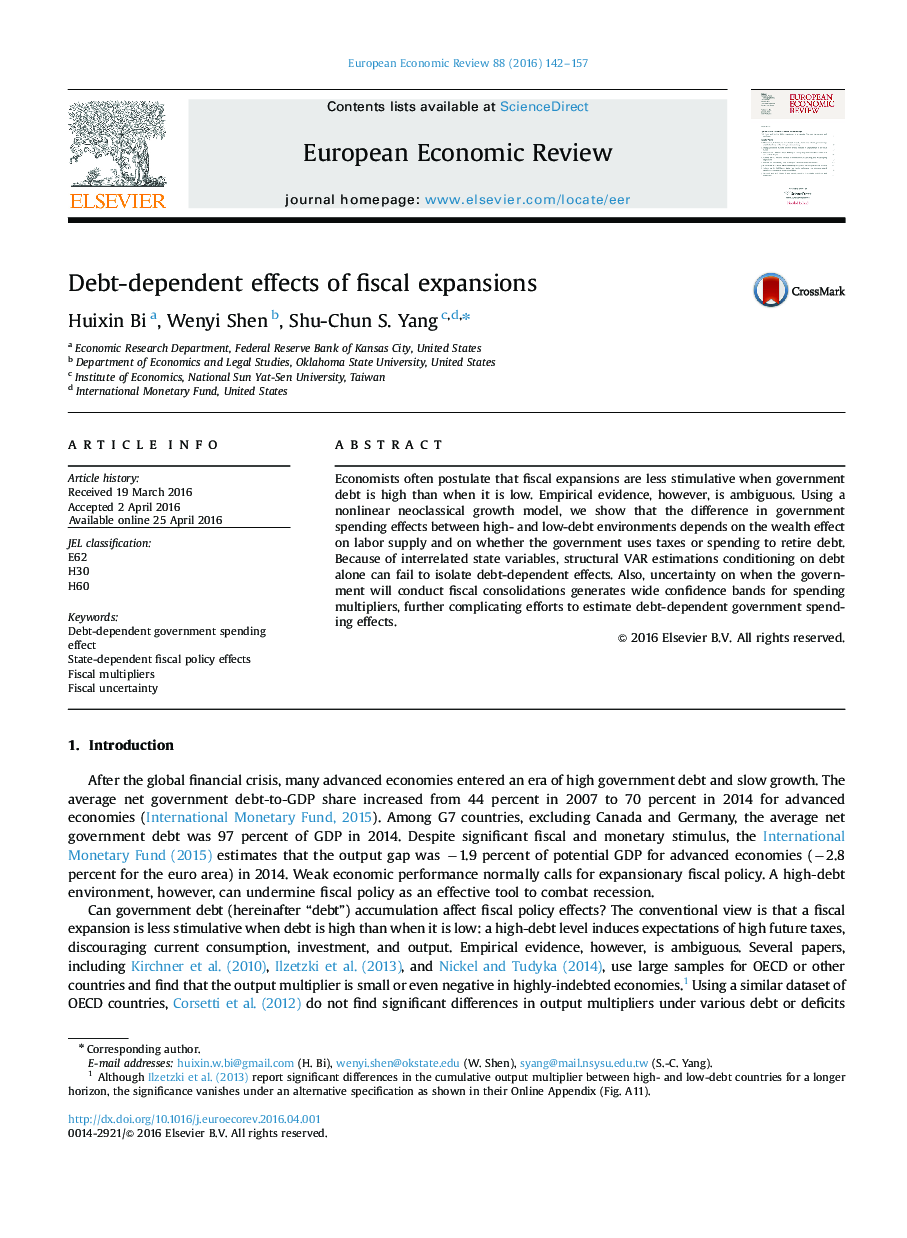| Article ID | Journal | Published Year | Pages | File Type |
|---|---|---|---|---|
| 5066433 | European Economic Review | 2016 | 16 Pages |
Economists often postulate that fiscal expansions are less stimulative when government debt is high than when it is low. Empirical evidence, however, is ambiguous. Using a nonlinear neoclassical growth model, we show that the difference in government spending effects between high- and low-debt environments depends on the wealth effect on labor supply and on whether the government uses taxes or spending to retire debt. Because of interrelated state variables, structural VAR estimations conditioning on debt alone can fail to isolate debt-dependent effects. Also, uncertainty on when the government will conduct fiscal consolidations generates wide confidence bands for spending multipliers, further complicating efforts to estimate debt-dependent government spending effects.
